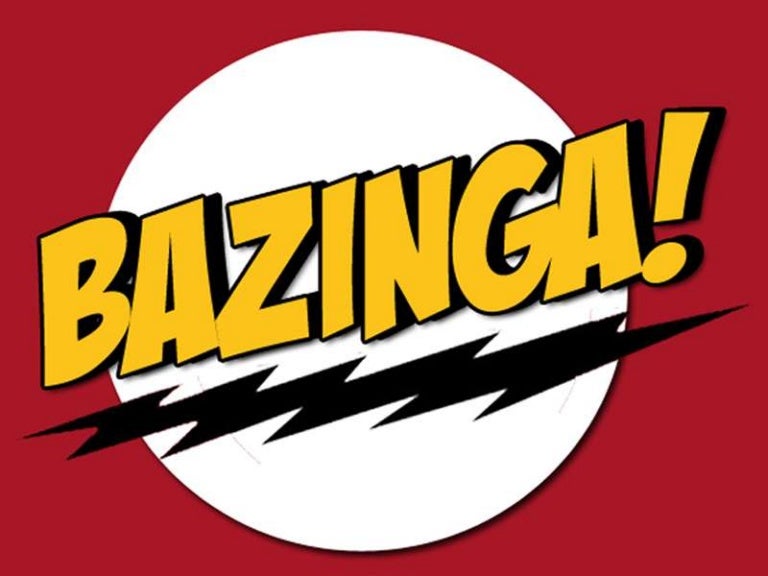
and nobody calls him Moon Pie but Meemaw! His grandmother calls him "Moon Pie" and he calls her "Meemaw".His mother and sister call him "Shelly", and only they are allowed to refer to him as such.Even in Young Sheldon, the older Sheldon narrating, who is eventually confirmed to be from some time after the events of the original series, shows he never fully grasped the lessons he "learned" from when he was a kid, such as believing he was never irritating or abusive to his friends and loved ones. Aesop Amnesia: Sheldon doesn't really learn lessons because he's too stubborn to believe he has anything to learn.Actually Pretty Funny: When he laughs, he only does it for a second before resuming to his usual serious, stoic self but when Penny imitates Leonard, he actually could barely resist the urge to laugh at it.Especially when he nails an Armor-Piercing Question on Leonard, it tends to prove beneficial to him in the long run by forcing him to confront that option. He also has a lack of social filter, such as that he will attempt things that others are too timid to do themselves and by all means shouldn't work, but sometimes does. For instance, he stopped Leonard from giving up the secrets to the experimental rocket fuel to a spy posing as his date, by barging in and complaining about them trying to sleep together without warning him 24 hours in advance, as their roommate agreement required.

Accidental Hero: On multiple occasions.He hopes that Sheldon’s catch phrase can make orchid bee research catchy as well.Sheldon: Sure, why not? And after the sun sets, we can all go pile up in my pickup truck and go skinny-dipping down by the the crick (creek)! Cause today's the day to stop making sense! So far, he has described a dozen new species of orchid bees, naming two of them after Brazilian icons. Nemesio hopes that by naming the bees something recognizable, researchers can call attention to their rapidly deteriorating habitat. Here’s an animation about how they collect and spread their perfumes:Īnd here’s a non-animated version of the bees’ collection process: The bees collect far more of their “cologne” from other sources, such as tree resin, fungi and leaves. It seems that the orchids need the bees more than the bees need the flowers-the compounds produced by the orchids are only about 10 percent of the compounds collected by the bees. The biologists reconstructed the complex evolutionary history of the plants and their pollinators, figuring out which bees pollinated which orchid species and analyzing the compounds collected by the bees. Surprising Science covered research on that very evolution:īut a new study in Science has found that the relationship isn’t as equal as had been thought.

These bees co-evolved with the plants they collect from, and the plants rely on the bees for pollination. Orchid bees are a beautiful, but poorly understood type of bee, that collect all sorts of chemicals that they then use to attract females.

Here’s every time Sheldon said “bazinga” from seasons one through four: Sheldon Cooper has also an asteroid named after him (246247 Sheldoncooper). has tricked us for some time due to its similarity to E. Sheldon Cooper’s favorite comic word “bazinga”, used by him when tricking somebody, was here chosen to represent the character.
SHELDON BAZINGA TV
The specific epithet honors the clever, funny, captivating “nerd” character Sheldon Cooper, brilliantly portrayed by the North American actor James Joseph “Jim” Parsons on the CBS TV show “The Big Bang Theory”. Andre Nemesio, from the Universidade Federal de Uberlândia, in Brazil, went for something a bit different: he and his team just named a brand new orchid bee Euglossa bazinga, after the catch phrase used by Sheldon Cooper on the television show “The Big Bang Theory.” What do you do when you have to name a brand new species? Some opt for using some defining physical feature.


 0 kommentar(er)
0 kommentar(er)
